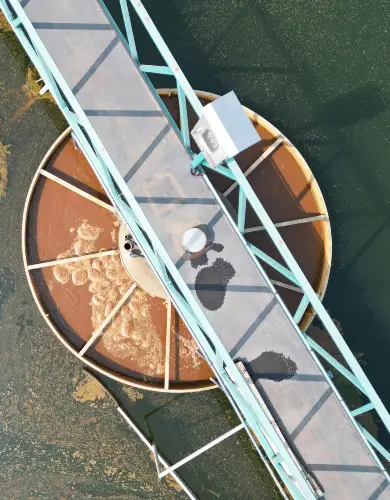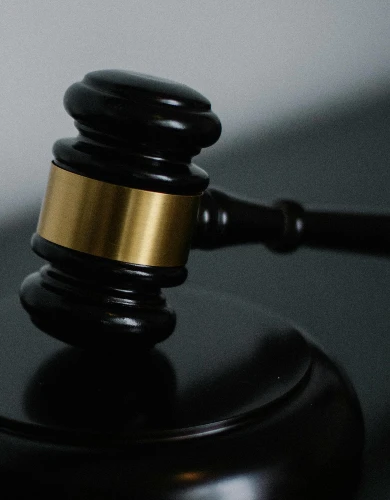Smart Meters: Can blockchain improve this controversial tech?
In this article, we discuss how blockchain technology may be the answer to having trustworthy smart meters that will pave the way for a national Smart Grid.
This alternative to the current grid may ensure the UK meets its 2050 climate targets while ensuring businesses and households have access to water, electricity and gas.
What are smart meters?
Smart meters are devices that allow real-time monitoring and measuring of water, electricity and gas usage, improving on the legacy meters that require manual readings, generally done over long time scales.
These digital devices are already helping suppliers and businesses become more efficient by helping to identify leakages, over-consuming equipment and solar panel performance, just to name a few.
Over the last decade, the UK government has made the implementation of Smart Meters a priority. By the end of 2021, half of all utility meters nationwide were smart meters.
However, the real potential of smart meters lies in their ability to harvest the data necessary to build an optimized utility system using A.I. and complex algorithms that would benefit everyone, from producers to suppliers and consumers.
What is the problem with smart meters?
Despite its touted potential, the current domestic and commercial smart meters have the same intrinsic data management flaws that many other digital technologies have at present.
There are no guarantees that the harvested data will be managed appropriately, particularly when it comes to privacy and security.
In their current form, smart meters are designed to send usage data directly to the business energy suppliers and business water suppliers that installed them, leaving some security and privacy experts concerned.
Having a single entity or party in control of this valuable data leaves a single point of failure, which is more vulnerable to hacking and ransomware attacks from malicious actors.
It also means that its data management policies are defined and regulated by the government, which may choose to give them the right to monetise it or, even worse, restrict access, potentially hampering innovation.
Scandals like that of Cambridge Analytica, where data was harvested without the user’s consent for malicious/illegal purposes, have shown that regulators cannot guarantee good behaviour when it comes to data management.
What is blockchain, and how can it improve smart meters?
Simply put, a blockchain is a server hosted and secured by a large network of computers distributed worldwide.
It is a database that has no single owner, no single point of failure, and may be queried by anyone with an internet connection. A blockchain database can be designed to anonymise identifying personal and business details. This makes it the perfect technology to guarantee this valuable utility usage data remains secure, private and accessible.
For an in-depth, highly technical review of blockchain and the smart grid, we recommend reading this peer-reviewed survey.
Don’t Trust, Verify!
As utility suppliers are in control of your data, your only choice as a consumer is to trust that the company is managing your data appropriately.
Regulators like Ofwat and Ofgem have set up data security and privacy standards that smart meter and utility companies must adhere to in order to operate.
However, the Volkswagen emissions scandal demonstrated that even seemingly trustworthy companies can cheat even in the most regulated nations in the world by tampering with in-house data.
So what if instead of trusting, we could simply verify that any allegations are true?
Storing electricity, gas and water usage data on a blockchain ledger would allow any third party with an internet connection to instantly verify the data.
Both honest errors and blatant fraud could be discerned, making it more difficult for any malicious actors to operate.
And in the future, this could be extended to any aspect of utility data, like verifying renewable energy or tracing your gas usage to its source.
This would allow consumers to know if their gas was imported from Russia or perhaps produced locally at the controversial Jackdaw gas field.
Does blockchain improve the data security of smart meters?
A solidly designed blockchain can enhance the security of any network by making it more difficult for attackers to tamper with the data stored in the server as it is hosted by a network of thousands of computers distributed all over the world.
For example, the Bitcoin blockchain network that hosts the Bitcoin cryptocurrency has been online since 2009 and has not been hacked a single time.
Can blockchain ensure data remains private and freely available?
Since no single entity owns a blockchain network, there are no barriers to accessing this valuable data, allowing unparalleled innovation to occur.
The blockchain could become a cradle for new data analytics initiatives, peer-to-peer utility trading schemes, and renewable energy auditors, just to name a few.
The prospect of freely available data (like Wikipedia) makes the possibility of building a smart grid that is not under the strict control of the government or powerful corporations a reality.
On top of this, blockchain networks can be designed in such a way that certain details of a particular household or business are not linked with its usage, thus hardwiring privacy in the network.
For example, if a business used 5L of water at 10:29 AM this would appear in the blockchain and would be available to anyone.
However, if the business ID in the database does not reveal its owner, location and specific usage, it prevents malicious actors from attempting ransomware.
Building a national smart grid
A nationwide smart grid is becoming a crucial development as climate change is making access to basic resources like water and some types of green energy increasingly difficult.
In a smart grid, intelligent algorithms optimize the production, distribution and usage of utilities across an immensely complex national grid.
This translates to lower usage and decreased carbon emissions to meet the UK’s 2050 net-zero pledge.
In a blockchain-based smart grid, your business could sell the electricity generated from commercial solar panels produced from its roof panels to another business or household, which could verify its provenance directly by querying the public blockchain.
Publicly available, real-time usage data could be used by energy and water retailers to optimize their production to match consumption and even use A.I. tools to anticipate usage patterns.
Are smart meters using blockchain at present?
There are tens if not hundreds of projects trialling the use of blockchain to improve smart meters.
In Medellin (Columbia), blockchain-based smart meters are being trialled to make the first peer-to-peer energy trading scheme.
In this trial, excess electricity is dynamically sold or bought to others in the network to optimize usage, costs and ultimately reduce overall consumption.
Many of these trials are leveraging the Energy Web Chain (EWC) blockchain network that is specifically designed for the utility sector.
It is backed by large companies like E-On, EDF and Vodafone, who are aware of the advantages of using blockchain technology.
Are there any issues with using blockchain to improve smart meters?
The main issue with using blockchain is that the technology is still in its infancy, and much of it is still experimental. Some of the networks are not yet decentralised or scalable enough to host nationwide smart grids.
This means that for now, your best bet to save costs on your business electricity, gas and water bills is to use our AquaSwitch comparison tool to compare utility suppliers and make sure you are getting the best deal possible.

